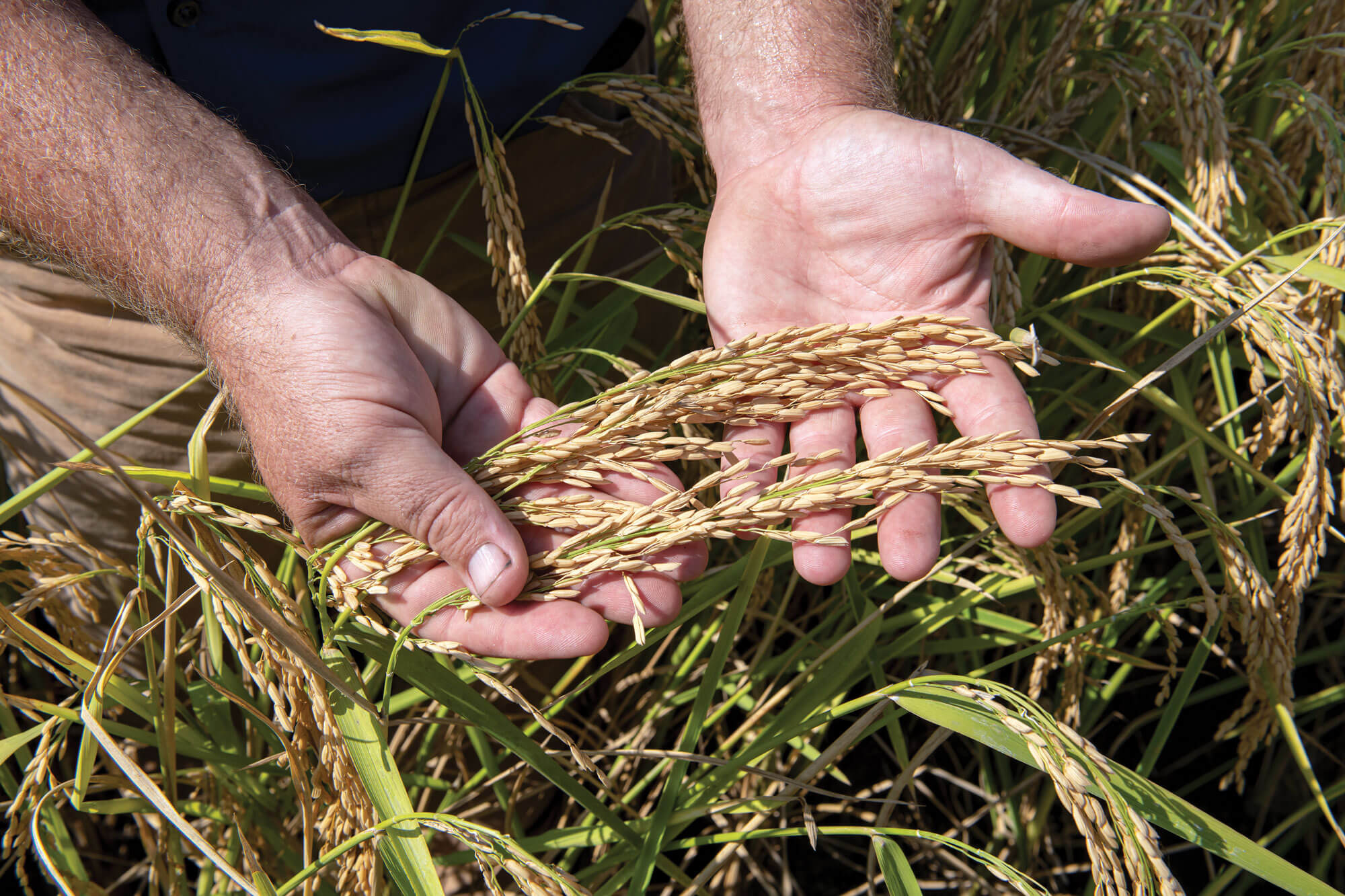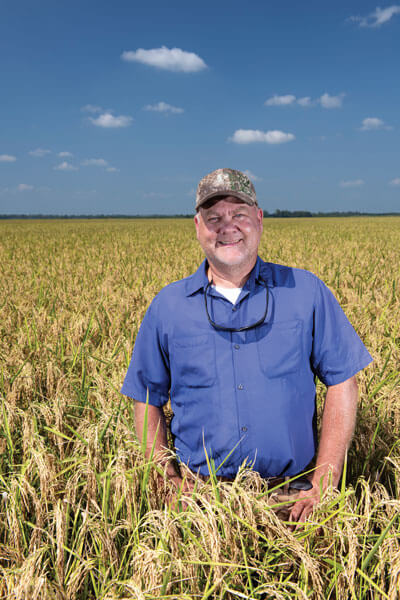
Where Rice Reigns
October 13, 2021
Written By Jason Jenkins
Over the years, Rance Daniels has tried his hand at several cash crops. He’s cultivated corn. He’s grown and baled cotton. But here in southern Dunklin County, Mo., just a stone’s throw from the Arkansas border, one crop excels where others struggle.

“This is rice ground,” the third-generation Bootheel farmer said matter-of-factly as he drove west on Highway 164, crossing over one of the many diversion ditches that helped drain this region and transform it from swamp to farmland more than a century ago. “If it wasn’t for the rice, there’d be a lot fewer of us farmers around here.”
Since the mid-1990s, the Daniels family has focused its farming operation on long-grain rice production. The ground they manage comprises mostly gumbo, a heavy clay soil that becomes practically impervious when wet. While this characteristic is a challenge for crops that prefer well-drained soils, it’s suited for rice.
“We farm about 2,700 acres, and in most years, roughly two-thirds of it will be in rice with the rest in soybeans,” he said. “All of our fields are precision graded, and we can irrigate 99 percent of it.”
The Danielses raise rice in two different ways. A majority is grown on zero-grade fields that are engineered to be flooded. With no slope, the field is like a shallow bathtub, holding water that irrigates the crop while providing weed control. The family also grows “row rice.”
“We started doing that about seven years ago on fields with a grade,” Rance explained. “Instead of building levies across a field to flood it, we use furrow irrigation. The rice is planted on the same raised beds that we grow our soybeans. It’s really helped us reduce tillage expenses and made it easier to rotate crops.”
Typically, the growing season for rice runs from late March through early September. Yields range from 150 to 220 bushels per acre. “Rice farmers want 200-bushel rice just like corn farmers want 200-bushel corn,” added the 48-year-old.
While Daniels Farms has many fuel, oil and lubricant needs, it was MFA Oil Company’s willingness to supply the farm with bulk oil that secured Rance’s business.
“Nobody else around here wanted to fool with it, so that’s how Perry converted me,” Rance said with a laugh, referring to MFA Oil Area Manager Perry Sample. “Now, they take care of everything for us.”
Rance began serving as an MFA Oil delegate in 2017. It’s one of his many volunteer positions. He currently is a director for the USA Rice Federation. He also devotes time to the Missouri Rice Research & Merchandising Council, the Missouri Farm Bureau Rice Committee, the Elk Chute Drainage District and the University of Missouri Fisher Delta Research Center Advisory Board.
“There’s a lot that goes on past my property line that can greatly affect my livelihood, so I’ve learned that you’ve got to be involved,” he said. “If you’re not in the room sharing your opinion, somebody else will be there, and that’s whose voice will be heard.”
Rance added that being involved allows him to be “in the know” sooner about opportunities that could benefit his farm. One such example is solar energy, which the MFA Oil business trends committee is currently exploring.
“At our last meeting, I learned what MFA Oil is doing with solar,” he said. “So, now we’re taking a look at it here, running the numbers to see if it could help offset the cost of running our grain bin dryers.”
Rance and his wife, Robin, have three children—26-year-old Taylor, 17-year-old Chase and 16-year-old Emma. In August, Taylor and her husband, Gunter Bell, welcomed their first child, Cooper. The family plans to continue its farming tradition.
“Chase is a senior this year, and after he graduates, he’s attending trade school to learn diesel mechanics,” Rance said. “After that, he wants to come back and farm. He’s got big ideas.”

